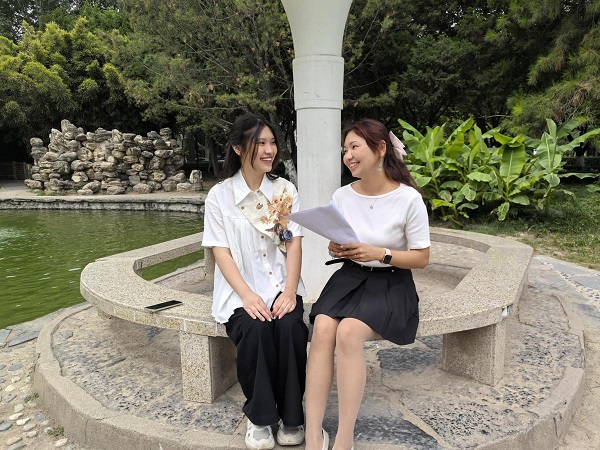Domestic and intl guests anticipate SCO education community development
The 2025 Annual Conference of Shanghai Cooperation Organization University (SCO University) was held on May 12 in Urumqi, Xinjiang Uygur autonomous region.
The event, organized by Xi'an Jiaotong University (XJTU) as the Chinese Presidential Office of SCO University, brought together representatives from 86 universities across seven countries, including China, Russia, Kazakhstan, Kyrgyzstan, and Tajikistan, to discuss major plans for educational collaboration under the SCO framework.
As the most critical multilateral platform for SCO educational cooperation, SCO University has seen XJTU assume the Chinese Presidential Office role since March, driving higher education and cultural exchanges among member institutions.
During the conference, XJTU's media center interviewed representatives from participating countries, capturing their visions for deepening education collaboration.
Vladimir Filippov, honorary president of the Peoples' Friendship University of Russia
Highlighting the potential of digital technologies, Filippov noted that the conference opened broad prospects for students to access high-quality educational resources, enabling cross-border participation in courses taught by leading professors. He emphasized that this collaboration extends beyond joint programs to academic exchanges and high-level conferences, paving new paths for SCO higher education cooperation.
Larisa Efremova, secretary-general of the SCO University Coordination Council
Efremova described the event as a high-level dialogue platform that embodies the "Shanghai Spirit". She underscored the milestone of new member institutions joining the SCO University, which expands geographic representation and injects fresh momentum for future growth.
Andrei D. Karol, rector of Belarusian State University
Member institutions of the SCO University have upheld the "Shanghai Spirit". Despite differences in educational systems and cultural traditions, pragmatic collaborations such as joint educational programs have fostered complementary strengths. We must not only advance reforms in education collectively, but also integrate potential based on each nation's unique conditions and the strengths of their local education systems, contributing to the progress of the SCO University.
Margulan Ibraimov, vice-rector of Al-Farabi Kazakh National University
This conference has yielded fruitful outcomes. Our university signed multiple strategic agreements, boosting deeper inter-university collaboration and regional coordinated development. At the digital education achievements exhibition, the integration of artificial intelligence (AI) and art stood out, highlighting the promising future of education-technology integration. Digitization, integration, and internationalization are now core drivers of our university's development. We look forward to fostering innovation in higher education through digital transformation.
Valeria Malomuzh, deputy vice-rector of St Petersburg University
This annual conference has established an efficient platform for communication among SCO University member institutions. Here, we exchanged ideas and shared experience, with the signing of multiple inter-university cooperation agreements being particularly pivotal.
Moving forward, we aim to promote resource sharing in education, dual-degree programs, and cross-border joint laboratories to strengthen collaborative innovation. We also aim to jointly build digital education platforms and deepen civilizational exchanges through cultural initiatives.
Zhang Liqun, president of XJTU and academician of the Chinese Academy of Engineering
Zhang emphasized XJTU's focus on digital education, industry-academia integration, and green development. He stated that the event aimed to strengthen educational coordination and cultural exchanges among member universities, supporting regional stability and cooperation. He called for collective efforts to harness digital innovation for advancing SCO education collaboration.
Dai Bin, Party secretary of Xinjiang University
Dai praised the conference for creating a platform to showcase educational innovation and highlighted SCO University's immense potential in talent development, discipline enhancement, and research collaboration. He noted its role in strengthening Xinjiang's international academic partnerships and improving regional education quality.
Fang Fang, vice-president of Peking University
We look forward to further strengthening cultural and academic exchanges with universities in SCO countries through initiatives such as joint training programs, regular forums for young scholars, and transnational cultural exchange projects. Additionally, in emerging fields like AI and digital education, we will enhance cooperation with SCO member states to align with China's strategy of opening-up.
Zhou Lei, vice-president of Fudan University
By deepening collaboration among SCO University member institutions, we aim to extend the scope of scientific cooperation and talent cultivation and prioritize AI-enabled educational innovation. Fudan will advance student exchange programs with universities in SCO member states, strengthen digital education partnerships, share high-quality educational resources, and enrich the substance and breadth of our cooperation.

